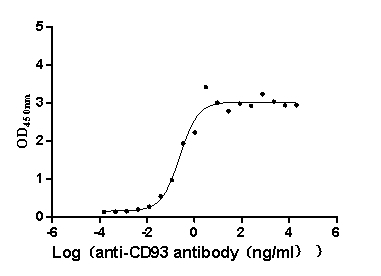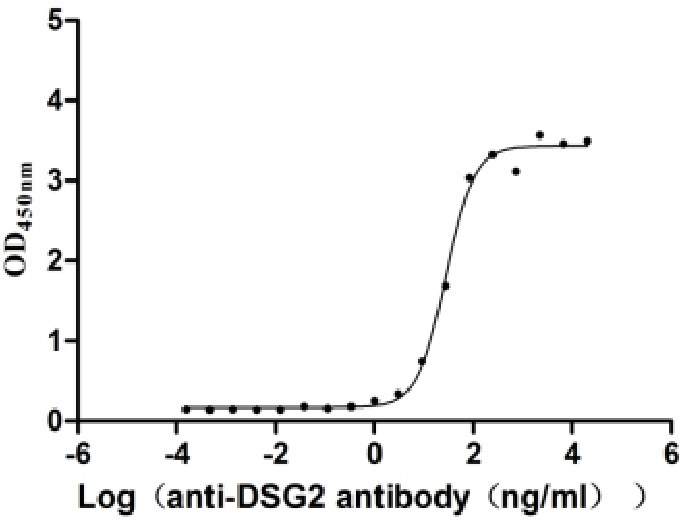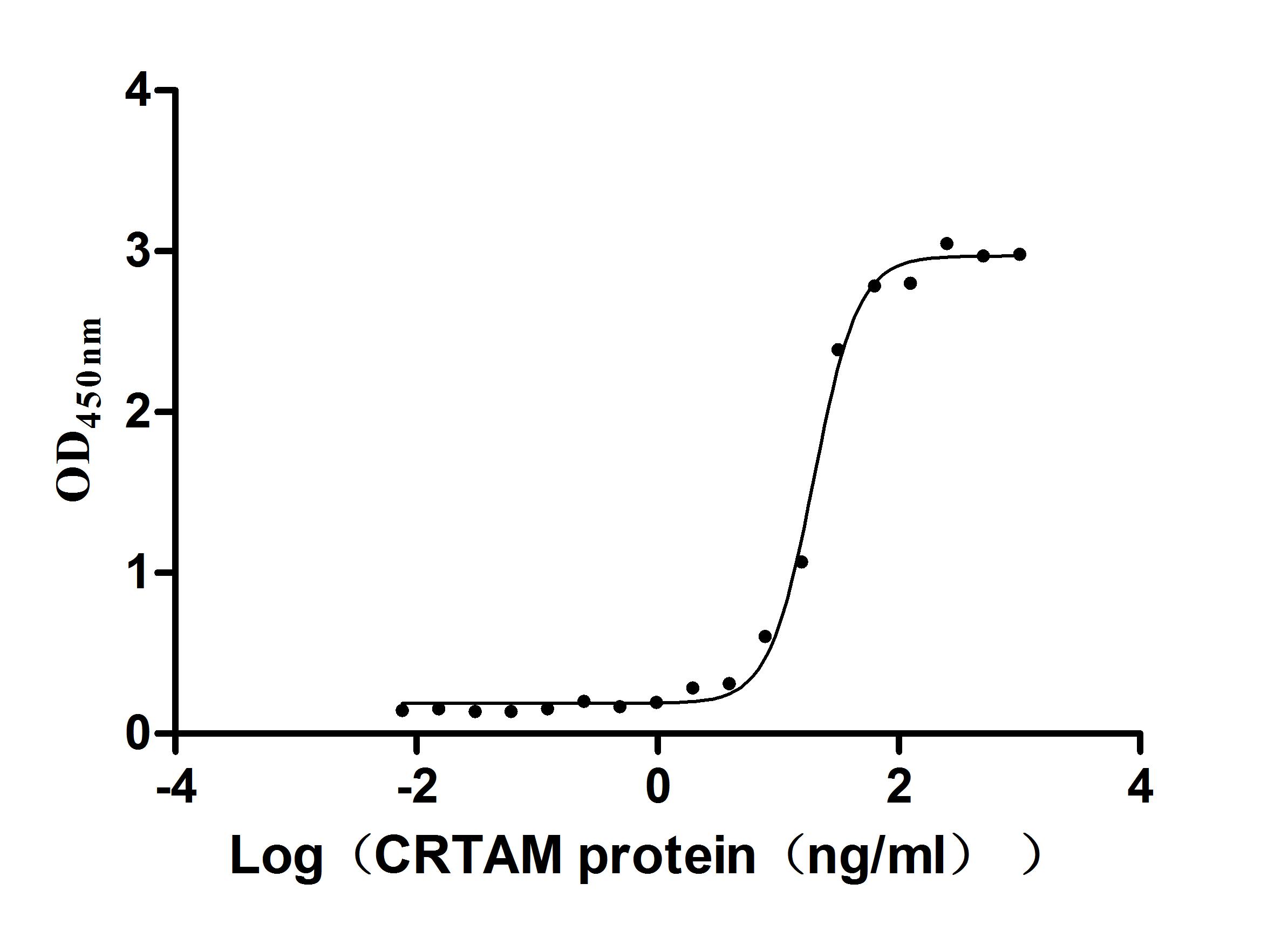Recombinant Mouse Glycosylphosphatidylinositol-anchored high density lipoprotein-binding protein 1 (Gpihbp1)
-
中文名稱:小鼠Gpihbp1重組蛋白
-
貨號:CSB-YP871959MO
-
規(guī)格:
-
來源:Yeast
-
其他:
-
中文名稱:小鼠Gpihbp1重組蛋白
-
貨號:CSB-EP871959MO
-
規(guī)格:
-
來源:E.coli
-
其他:
-
中文名稱:小鼠Gpihbp1重組蛋白
-
貨號:CSB-EP871959MO-B
-
規(guī)格:
-
來源:E.coli
-
共軛:Avi-tag Biotinylated
E. coli biotin ligase (BirA) is highly specific in covalently attaching biotin to the 15 amino acid AviTag peptide. This recombinant protein was biotinylated in vivo by AviTag-BirA technology, which method is BriA catalyzes amide linkage between the biotin and the specific lysine of the AviTag.
-
其他:
-
中文名稱:小鼠Gpihbp1重組蛋白
-
貨號:CSB-BP871959MO
-
規(guī)格:
-
來源:Baculovirus
-
其他:
-
中文名稱:小鼠Gpihbp1重組蛋白
-
貨號:CSB-MP871959MO
-
規(guī)格:
-
來源:Mammalian cell
-
其他:
產(chǎn)品詳情
-
純度:>85% (SDS-PAGE)
-
基因名:Gpihbp1
-
Uniprot No.:
-
別名:Gpihbp1; Hbp1; Glycosylphosphatidylinositol-anchored high density lipoprotein-binding protein 1; GPI-HBP1; GPI-anchored HDL-binding protein 1; High density lipoprotein-binding protein 1
-
種屬:Mus musculus (Mouse)
-
蛋白長度:Full Length of Mature Protein
-
表達(dá)區(qū)域:23-228
-
氨基酸序列QEDGDADP EPENYNYDDD DDEEEEEETN MIPGSRDRAP LQCYFCQVLH SGESCNQTQS CSSSKPFCIT LVSHSGTDKG YLTTYSMWCT DTCQPIIKTV GGTQMTQTCC QSTLCNIPPW QNPQVQNPLG GRADSPLESG TRHPQGGKFS HPQVVKAAHP QSDGANLPKS GKANQPQGSG AGYPSGWTKF GNIALLLSFF TCLWASGA
-
蛋白標(biāo)簽:Tag?type?will?be?determined?during?the?manufacturing?process.
The tag type will be determined during production process. If you have specified tag type, please tell us and we will develop the specified tag preferentially. -
產(chǎn)品提供形式:Lyophilized powder
Note: We will preferentially ship the format that we have in stock, however, if you have any special requirement for the format, please remark your requirement when placing the order, we will prepare according to your demand. -
復(fù)溶:We recommend that this vial be briefly centrifuged prior to opening to bring the contents to the bottom. Please reconstitute protein in deionized sterile water to a concentration of 0.1-1.0 mg/mL.We recommend to add 5-50% of glycerol (final concentration) and aliquot for long-term storage at -20℃/-80℃. Our default final concentration of glycerol is 50%. Customers could use it as reference.
-
儲存條件:Store at -20°C/-80°C upon receipt, aliquoting is necessary for mutiple use. Avoid repeated freeze-thaw cycles.
-
保質(zhì)期:The shelf life is related to many factors, storage state, buffer ingredients, storage temperature and the stability of the protein itself.
Generally, the shelf life of liquid form is 6 months at -20°C/-80°C. The shelf life of lyophilized form is 12 months at -20°C/-80°C. -
貨期:Delivery time may differ from different purchasing way or location, please kindly consult your local distributors for specific delivery time.Note: All of our proteins are default shipped with normal blue ice packs, if you request to ship with dry ice, please communicate with us in advance and extra fees will be charged.
-
注意事項:Repeated freezing and thawing is not recommended. Store working aliquots at 4°C for up to one week.
-
Datasheet :Please contact us to get it.
靶點詳情
-
功能:Mediates the transport of lipoprotein lipase LPL from the basolateral to the apical surface of endothelial cells in capillaries. Anchors LPL on the surface of endothelial cells in the lumen of blood capillaries. Thereby, plays an important role in lipolytic processing of chylomicrons by LPL, triglyceride metabolism and lipid homeostasis. Binds chylomicrons and phospholipid particles that contain APOA5. Binds high-density lipoprotein (HDL) and plays a role in the uptake of lipids from HDL.
-
基因功能參考文獻:
- the negatively charged IDR of GPIHBP1 traverses a vast space, facilitating capture of LPL by capillary endothelial cells and simultaneously contributing to GPIHBP1's ability to preserve LPL structure and activity. PMID: 29899144
- mutation of a conserved cysteine in GPIHBP1 abolishes the ability of GPIHBP1 to bind LPL PMID: 28476858
- LPL moved quickly from heparan sulfate proteoglycans (HSPGs) on adipocytes to GPIHBP1-coated beads, thereby depleting LPL stores on the surface of adipocytes. We conclude that HSPG-bound LPL in the interstitial spaces of tissues is mobile, allowing the LPL to move to GPIHBP1 on endothelial cells PMID: 27811232
- An LPL structural model suggests that the LPL S447X truncation exposes residues implicated in LPL binding to lipoprotein binding uptake receptors, such as GPIHBP1. PMID: 27984852
- Laminin regulates PDGFRbeta cell differentiation, fate determination, cell stemness and muscle development via gpihbp1. PMID: 27138650
- the two domains of GPIHBP1 interact independently with LPL and the functionality of LPL depends on its localization on GPIHBP1 PMID: 25873395
- TRL margination depends on LPL bound to GPIHBP1. PMID: 24726386
- In adipose tissue, Gpihbp1 levels increases rapidly during fasting, when lipoprotein lipase activity decreases. PMID: 23176178
- Neither a high fat diet nor fasting/re-feeding markedly altered the distribution pattern of LPL or GPIHBP1 in mouse pancreas. PMID: 23186339
- The GPIHBP1 and LPL move bidirectionally across endothelial cells in vesicles and that transport is efficient even when caveolin-1 is absent. PMID: 23008484
- analysis of glycosylphosphatidylinositol-anchored HDL-binding protein 1 (GPIHBP1) expression in mouse tissues revealed by positron emission tomography scanning PMID: 20889497
- Intravenously injected apoA-V rHDL significantly lowers plasma TG in an apoA-V deficient mouse model and requires gpihbp1. PMID: 20966404
- GPIHBP1 is located at the basolateral surface of capillary endothelial cells and actively transports LPL across endothelial cells. PMID: 20620994
- Like ANGPTL4, ANGPTL3 inhibited nonstabilized LPL but not GPIHBP1-stabilized LPL PMID: 19542565
- GPIHBP1 is required for the lipolytic processing of both apo-B48- and apo-B100-containing lipoproteins PMID: 19815815
- GPIHBP1 is an important platform for the LpL-mediated processing of chylomicrons in capillaries. PMID: 17403372
- Eliminating the N-glycosylation site in a truncated soluble version of GPIHBP1 causes a modest reduction in the secretion of the protein. These studies demonstrate that N-glycosylation of GPIHBP1 is important for the trafficking of GPIHBP1 to cell surface PMID: 18340083
- the acidic domain of GPIHBP1 is important and electrostatic interactions play a key role in ligand binding PMID: 18713736
- Gpihbp1 transcript levels in brown and white adipose tissue were lower in endothelial cell PPARgamma knockout mice than in littermate control mice, suggesting that PPARgamma regulates Gpihbp1 expression in vivo. (GPIHBP1) PMID: 18787041
- GPIHBP1 represents an important binding site for LPL in vivo PMID: 18845532
- a structurally intact Ly6 domain (in addition to the acidic domain) in GPIHBP1 is essential for LPL binding PMID: 19726683
顯示更多
收起更多
-
亞細(xì)胞定位:Apical cell membrane; Lipid-anchor, GPI-anchor. Basolateral cell membrane; Lipid-anchor, GPI-anchor. Cell membrane; Lipid-anchor, GPI-anchor.
-
組織特異性:Detected in fat tissue. Detected on the luminal surface of capillary endothelial cells in heart, skeletal muscle and brown adipose tissue (at protein level). Detected in heart and brown adipose tissue. Expressed at lower levels in lung and liver.
-
數(shù)據(jù)庫鏈接:
Most popular with customers
-
Recombinant Human IGF-like family receptor 1 (IGFLR1), partial (Active)
Express system: Mammalian cell
Species: Homo sapiens (Human)
-
Recombinant Mouse Prolactin receptor (Prlr), partial (Active)
Express system: Mammalian cell
Species: Mus musculus (Mouse)
-
Recombinant Human Signal transducer CD24 (CD24)-Nanoparticle (Active)
Express system: Mammalian cell
Species: Homo sapiens (Human)
-
Recombinant Human C-X-C chemokine receptor type 4 (CXCR4)-VLPs (Active)
Express system: Mammalian cell
Species: Homo sapiens (Human)
-
Recombinant Macaca fascicularis CD93 molecule (CD93), partial (Active)
Express system: Mammalian cell
Species: Macaca fascicularis (Crab-eating macaque) (Cynomolgus monkey)
-
Recombinant Human Desmoglein-2 (DSG2), partial (Active)
Express system: Mammalian cell
Species: Homo sapiens (Human)
-
Recombinant Human Cell adhesion molecule 1 (CADM1), partial (Active)
Express system: Mammalian cell
Species: Homo sapiens (Human)
-
Recombinant Human C-type lectin domain family 4 member C (CLEC4C), partial (Active)
Express system: Mammalian cell
Species: Homo sapiens (Human)


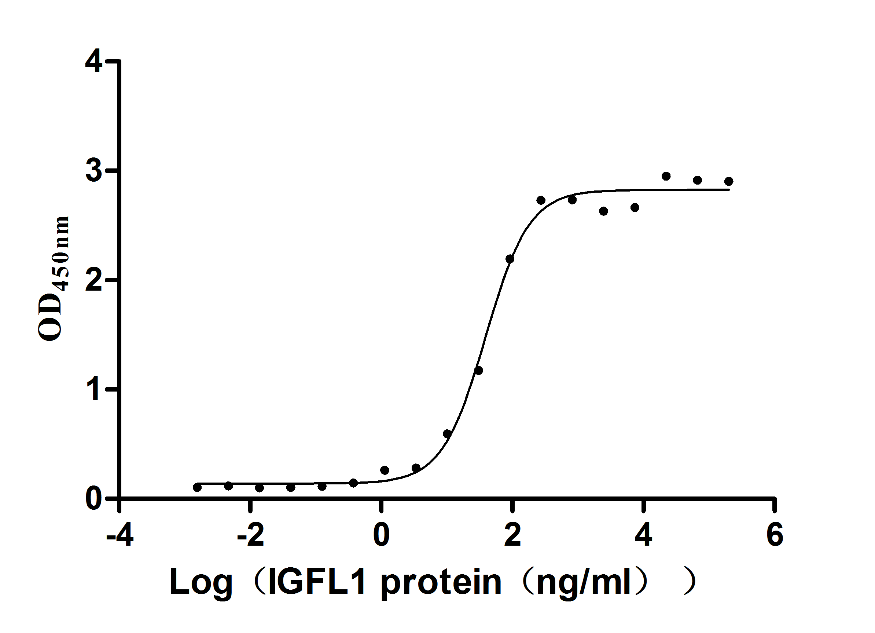
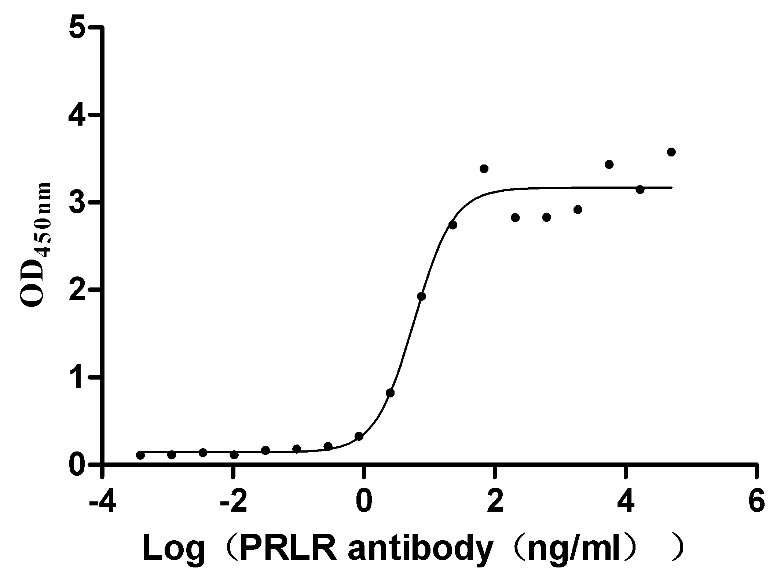
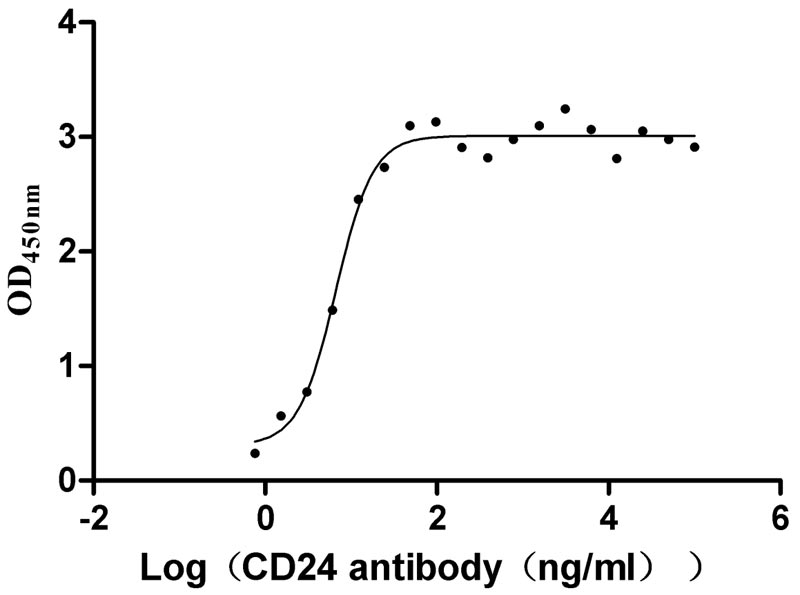
-AC1.jpg)
